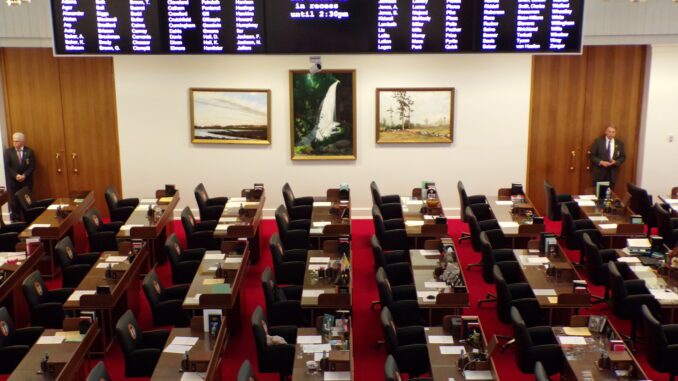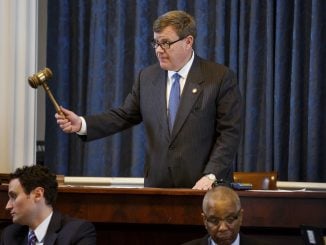
RALEIGH — With the passage of the state budget last month, state agriculture and natural resource priorities will see investments of more than $363 million.
The net appropriation set aside in the budget for Agriculture and Natural Resources is $180,926,866 for FY 2023-23 and $182,244,062 for FY 2024-25.
“Overall, I am pleased with the 2023-2024 State Budget and I am grateful for the legislature’s continued investment in and support of agriculture, agribusinesses and our farmers,” State Agriculture Commissioner Steve Troxler said in an email statement to North State Journal.
“Specifically, that includes $25 million in funding for Farmland Preservation efforts, which I believe is critically needed; $20 million in the Streamflow Rehabilitation Assistance Program, which is focused on reducing downstream flooding from tropical storms and hurricanes; $20 million for the N.C. Agriculture Manufacturing and Processing Initiative, a new project to attract and facilitate more agribusiness development; and, nearly $8 million in funding for our agricultural research stations. I believe these are practical and smart investments benefiting our whole state.”
Topline figures include $12 million for food banks, $20 million for stream maintenance and restoration, $25 million for farmland preservation programs, $37.5 million for disaster resiliency and flood mitigation issues, and $56 million in grants for the conservation of land, parks and trails.
Items with recurring funds over the two-year budget include $260,000 for the Large Animal Health Enhancement Fund, $300,000 for The Christmas Tree Genetics Program, $1 million for N.C. Sweet Potato promotion, and $7.95 million for the Research Stations Operating Fund.
The Agriculture Analytics Platform Initiative run by SAS Institute at NC State will see recurring funds of $650,000 in year one of the budget and another $1 million in year two. Similarly, at NC A&T, SAS’ analytics program will receive $1 million in recurring funds for both years of the budget.
Farmland preservation, a longtime priority of NC Agricultural Commissioner Steve Troxler, will get $10 million in year one and $15 million in year two. The funding is nonrecurring. Also under farmland preservation, the Tobacco Trust Fund will receive $7M each year overall.
One of the largest appropriations is $20 million in nonrecurring funds during year one of the budget for Streamflow Rehabilitation Assistance Program, which provides grants for projects aimed at reducing flooding and restoring streams across the state.
The N.C. Department of Commerce will get half a million in year one to spend on a study of N.C. Agribusiness Economic Development.
Education-wise, $2 million each year in nonrecurring funds will be used for Career and Technical Education (CTE) grants for middle and high school students studying agriculture through NC State University’s Agriculture Extension.
Under the budget, the oversight of the Tobacco Farm Life Museum is moved to the Department of Natural and Cultural Resources. The money set aside for the museum in year one is $375,000 in a mix of recurring and nonrecurring funding and $350,000 in recurring funds in year two.
Other appropriation items of note include:
- $100,000 — North Carolina Cattlemen’s Association (year one, nonrecurring)
- $250,000 — First annual “NC Farmers Appreciation Day” (year one, nonrecurring)
- $350,000 — Green Industry Economic Impact Study via NC State University (year one, nonrecurring)
- $512,000 — North Carolina Christmas Tree Association (year one, nonrecurring)
- $833,000 — Community Conservation Assistance Program; $333,000 in year one nonrecurring and $500,000 in year two nonrecurring
- $2 million — Agriculture cost-share program for French Broad River Basin livestock farmers (year one, nonrecurring)
- $3.5 million — Agriculture Cost Share Program (year one, nonrecurring)



